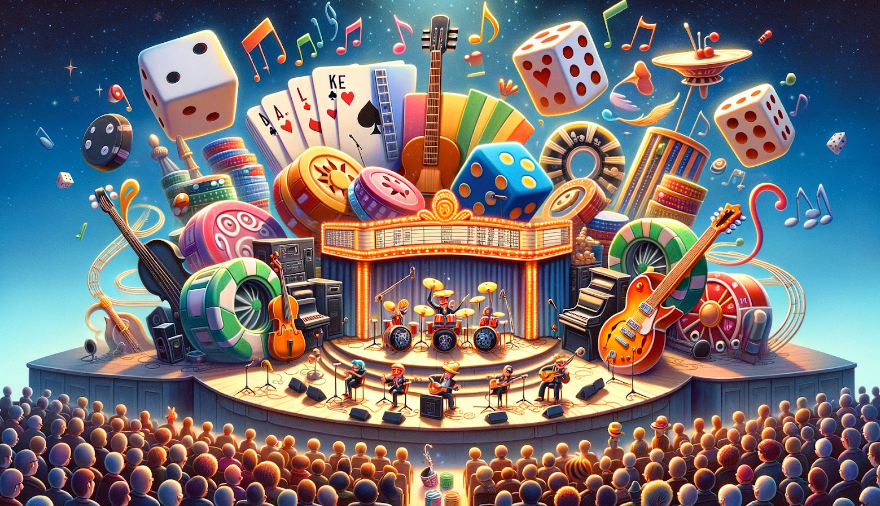In the House of Jack, where the stakes are high and the rhythms pulsate with the allure of the gamble, music finds a rich vein of inspiration. This intertwining of gambling and melody isn't merely a matter of chance but a cultural tapestry that reveals much about our society's dance with Lady Luck. Let's dive into how gambling's influence has echoed across different music genres and what this symphony of risk tells us about our relationship with the thrill of the bet.
The Gamble in the Groove: A Historical Overview
From the bluesy depths of the Mississippi Delta to the neon-lit corridors of Las Vegas, gambling has been a muse for musicians, offering a metaphor for life's uncertainties and the human condition. It's in the clink of poker chips and the spin of the roulette wheel that artists have found a wellspring of inspiration, crafting narratives that resonate with the highs of victory and the lows of defeat.
The Ballads of Luck and Loss
In exploring the influence of gambling in popular music, we come across an eclectic playlist that spans genres, eras, and attitudes. Here are a few notable examples:
- The Blues and Country: Songs like "The Gambler" by Kenny Rogers and "Blackjack County Chains" by Willie Nelson use gambling as a backdrop to explore themes of fate, fortune, and knowing when to make your move.
- Rock and Pop: The Rolling Stones' "Tumbling Dice" and Lady Gaga's "Poker Face" play with the lexicon of gambling to delve into relationships and the masks we wear.
- Hip-Hop and Rap: Clams Casino and A$AP Rocky's collaborations often reference gambling, using the language of the hustle to narrate stories of ambition and survival in the urban landscape.
These tracks are more than just odes to the thrill of the game; they're reflections on life, love, and the pursuit of happiness against the odds.
A Society's Bet with Itself
Gambling in music often serves as a mirror to societal attitudes toward risk, reward, and the allure of instant gratification. Through the decades, as the stigma around gambling has fluctuated, so too has its portrayal in popular music. This evolution offers a window into our collective psyche, revealing our fascinations, fears, and fantasies around the gamble.
Rolling the Dice on Meaning
In dissecting the lyrics and melodies that celebrate or caution against the roll of the dice, we uncover a rich narrative of human aspiration and cautionary tales. This duality speaks to the heart of the gambling experience: a blend of euphoria and anxiety, of dreams made and broken at the turn of a card.
Reading Between the Lines
Why do we, as a society, continue to be fascinated by the gamble? Music suggests that it's not just the thrill of winning but the drama of the play, the flirtation with fate, and the storytelling potential that gambling affords. It's a metaphor for life's unpredictable nature, offering artists a palette to explore the deeper questions of destiny, choice, and chance.
The Soundtrack of Risk
As gambling finds its way into the mainstream consciousness through legalization and online platforms like "House of Jack," its representation in music also evolves. This accessibility changes the narrative, turning the gamble from a whispered vice to a celebrated aspect of contemporary life. The music reflects this, portraying gambling not just as a risk but as a part of our cultural identity.
Conclusion: The Everlasting Echo of the Gamble
In the house of Jack, where music and gambling play their endless game, we see a reflection of ourselves. Our society's relationship with gambling, as chronicled in the songs of the ages, tells a story of hope, desperation, caution, and thrill-seeking. As long as there are tales of risk and reward, music will continue to capture the essence of the gamble, weaving it into the fabric of cultural expression. This dance between chance and destiny, articulated through the universal language of music, reveals much about our values, our fears, and our dreams. In every note, we hear the echo of the gamble, a sound as timeless as the human spirit's quest for meaning in the face of uncertainty.
